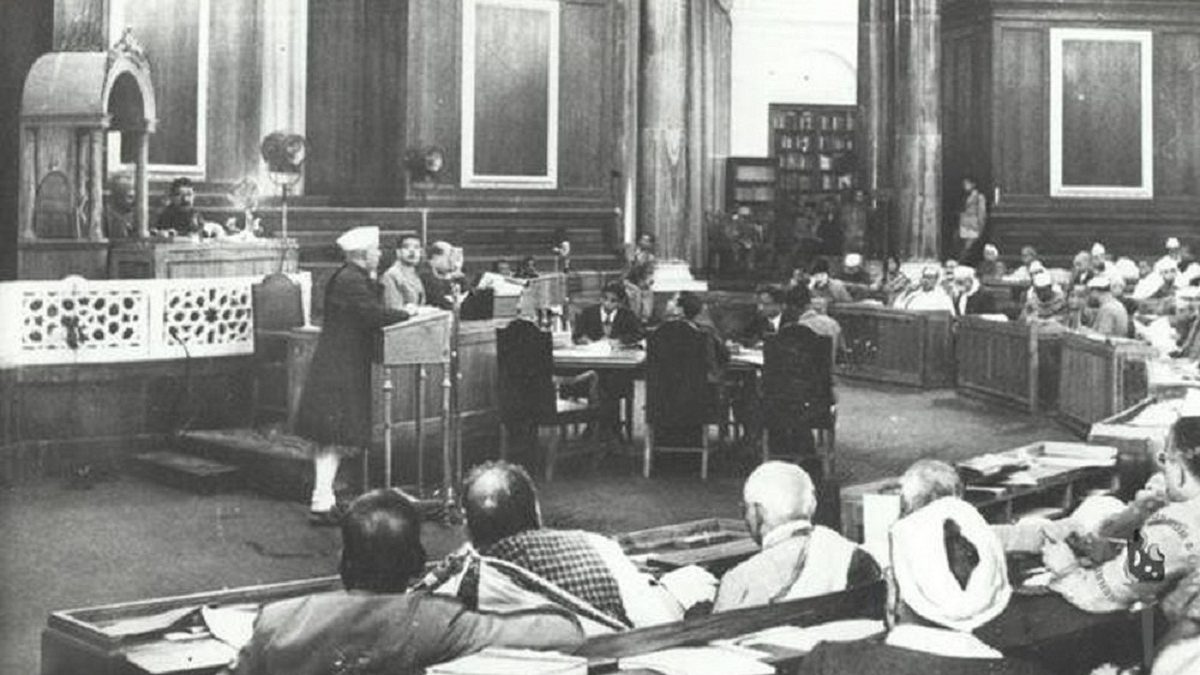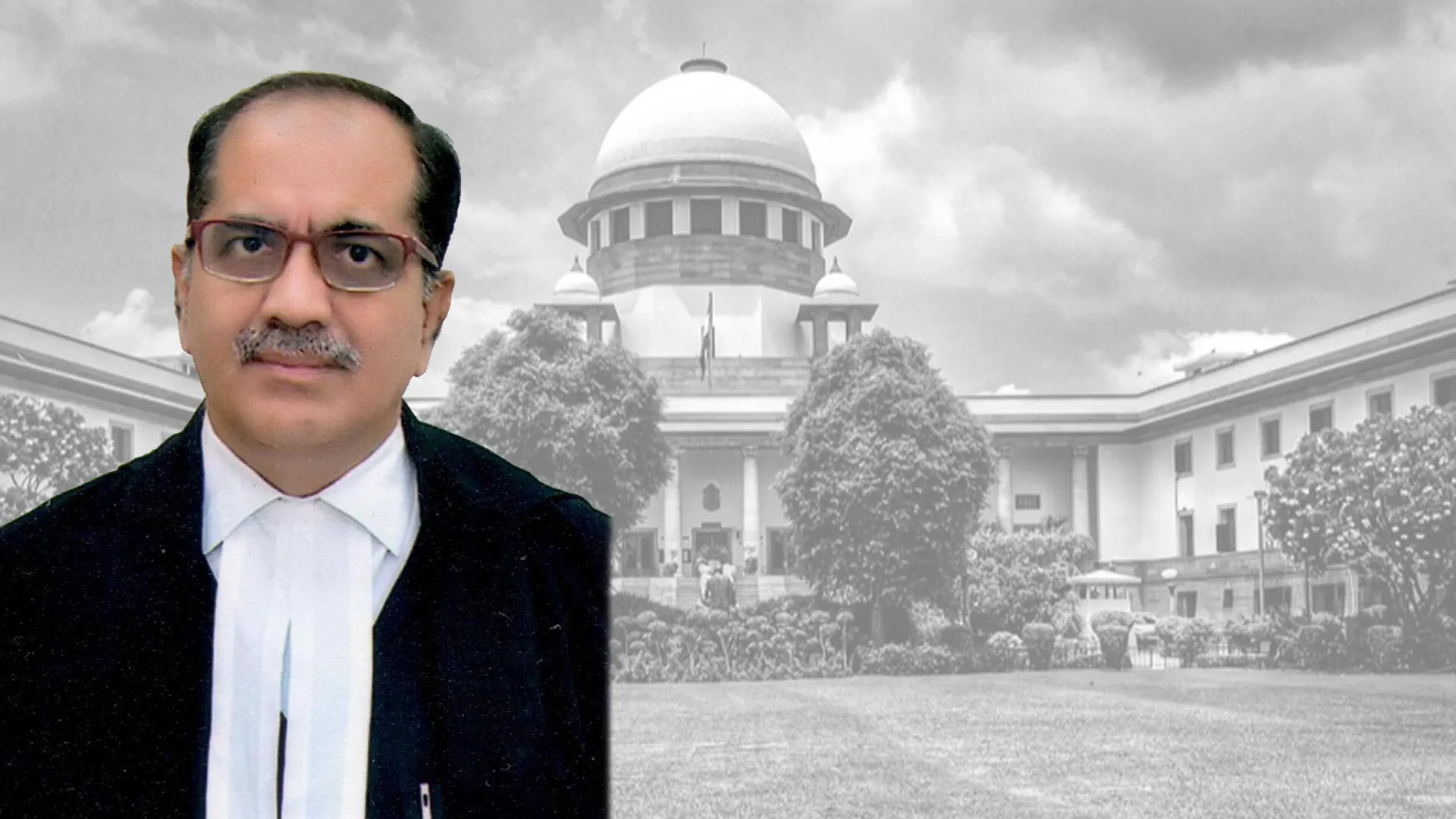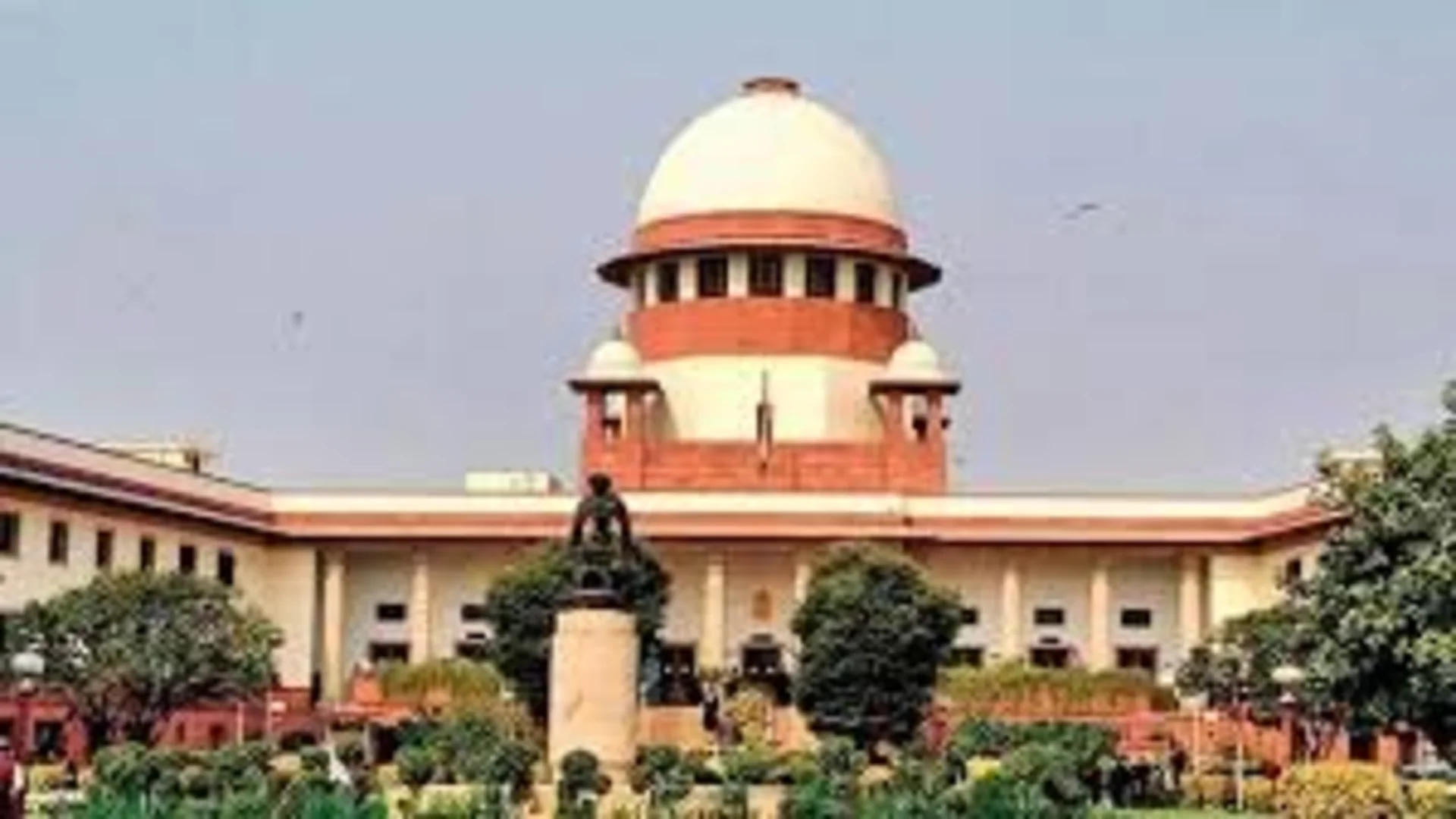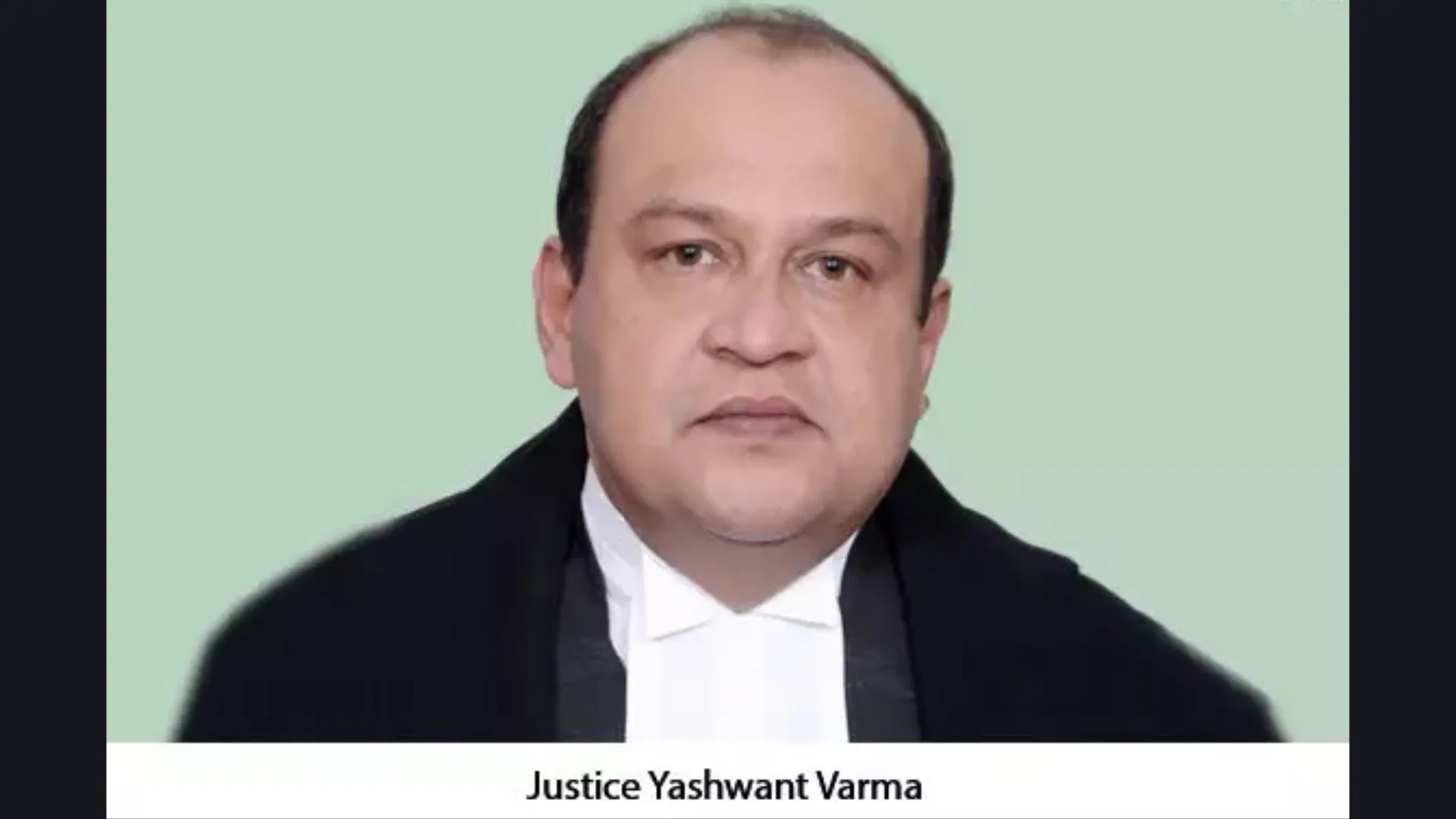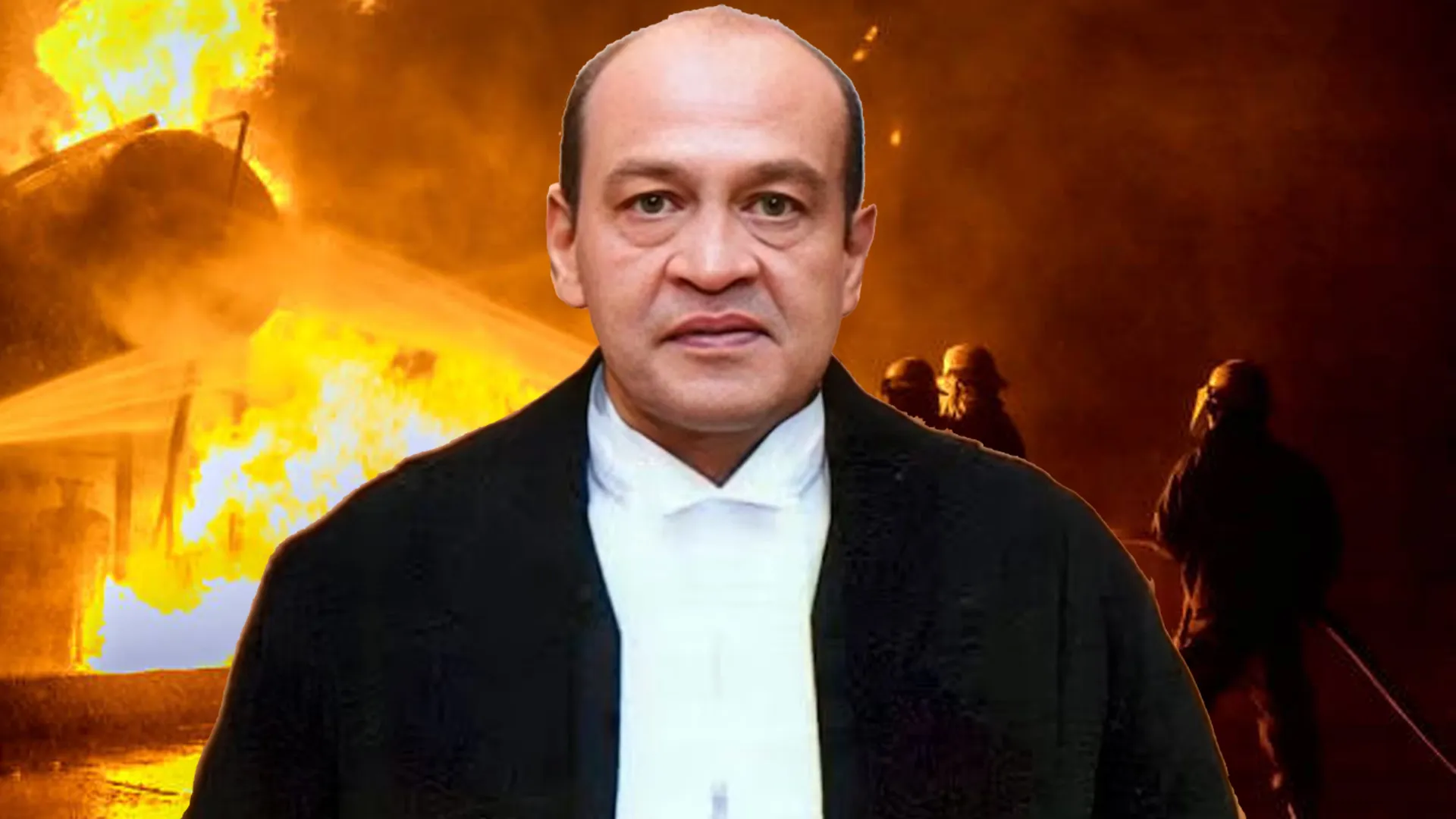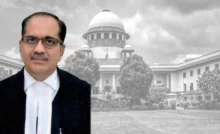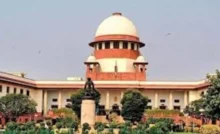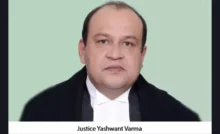In this piece, continuing with my discussion on sedition from the last three pieces, I will examine the Constituent Assembly debates on sedition to understand if the very concept of sedition was opposed by the framers of the Constitution or at least a majority of them. Broadly, the debates on the subject may be divided into two parts- the first before the Draft Constitution was presented to the Constituent Assembly on February 21, 1948 by the Drafting Committee, and the second after the Draft Constitution was taken up for debates by the Assembly from November 15, 1948.
On April 29, 1947, when the Interim Report on Fundamental Rights was taken up for discussion by the Assembly, Shri Somnath Lahiri brought up the issue of the relationship between the guarantee of fundamental rights and the broad nature of the restrictions sought to be imposed on them which, he feared, would have the effect of taking away everything that was guaranteed. Lahiri also challenged the need for and the breadth of the restriction on free speech based on sedition. The relevant portion of his submissions are as follows:
“…But in the fundamental rights that have been cooked up by this Committee we do not find this right. That is why I am constrained to say that these are fundamental rights from a police constable’s point of view and not from the point of view of a free and fighting nation. Here whatever right is given is taken away by a proviso. Does Sardar Patel want even more powers than the British Government—an alien Government, an autocratic Government which is against the people—needs to protect itself? Certainly not. Sardar Patel has the support of the overwhelming masses of the people and, therefore, he can do with much less powers to rule the country than an autocratic government would require. But here we find that none of the existing provisions of the powers of the executive has been done away with; rather in some respects those powers are sought to be increased. And if some of the amendments are passed—specially that of Shri Rajagopalachariar—it will in certain cases be even worse than the conditions obtaining at present. I will give one example. Here according to Sardar Patel a seditious speech is a punishable crime. If I say at any time in the future, or the Socialist Party says, that the Government in power is despicable, Sardar Patel, if he is in power at that time, will be able to put the Socialist Party people and myself in jail, though, as far as I know, even in England a speech, however seditious it may be, is never considered a crime unless an overt act is done. These are the fundamental bases of the fundamental rights of a free country, but here a seditious speech also is going to be an offence; and Shri Rajagopalachariar wants to go further. Sardar Patel would punish us if we make a speech, but Rajaji would punish us even before we have made the speech. He wants to prevent the making of the speech itself if in his great wisdom he thinks that the fellow is going to make a seditious speech.
…If I am in the opposition or if someone else is in the opposition it is certainly his business to say that the existing Government is despicable; otherwise he would not be in the opposition. Why should my right to say that be curtailed and at the same time we should assume that political opposition will grow and democracy will develop? It cannot; it will have to depend on the sweet will and the tender mercies of the party in power or the executive in power. That is not the basis of democracy.”
Lahiri, accordingly, sought the deletion of the word “seditious” from Clause 8(a) (one of the predecessors to Article 19) contained in the interim report on Fundamental Rights, which read as under:
RIGHTS OF FREEDOM
8. There shall be liberty for the exercise of the following rights subject to public order and morality or to the existence of grave emergency declared to be such by the Government of the Union or the Unit concerned whereby the security of the Union or the Unit, as the case may be, is threatened:—
(a) the right of every citizen to freedom of speech and expression:
Provision may be made by law to make the publication or utterance of seditious, obscene, blasphemous, slanderous, libellous or defamatory matter actionable or punishable.
In the Draft Constitution of 1948, the fundamental right to free speech and expression was dealt with in Draft Article 13 which contained sedition as one of the restrictions on free speech and expression. On December 1, 1948, following were the views of Shri Damodar Swarup Seth on sedition:
“Indeed, Sir, the guarantee of freedom of speech and expression which has been given in this article, is actually not to affect the operation of any existing law of prevent the State from making any law relating to libel, slander, defamation, sedition and other matters which offend the decency or morality of the State or undermine the authority or foundation of the State. It is therefore clear, Sir, that the rights guaranteed in article 13 are cancelled by that very section and placed at the mercy or the high-handedness of the legislature. These guarantees are also cancelled, Sir, when it is stated that, to safeguard against the offences relating to decency and morality and the undermining of the authority or foundation of the State, the existing law shall operate. This is provided for in very wide terms. So, while certain kinds of freedom have been allowed on the one hand, on the other hand, they have been taken away by the same article as I have just mentioned. To safeguard against “undermining the authority or foundation of the State” is a tall order and makes the fundamental right with regard to freedom of speech and expression virtually ineffectual. It is therefore clear that under the Draft Constitution we will not have any greater freedom of the press than we enjoyed under the cursed foreign regime and citizens will have no means of getting a sedition law invalidated, however flagrantly such a law may violate their civil rights.
The Honourable Dr. Ambedkar, Sir, while justifying the limitations on civil liberties, has maintained that what the Drafting Committee has done is that, instead of formulating civil liberties in absolute terms and depending on the aid of the Supreme Court to invent the doctrine or theory of police powers, they have permitted the State to limit civil liberties directly. Now, if we carefully study the Law of Police Powers in the United States, it will be clearly seen that the limitations embodied in the Draft Constitution are far wider than those provided in the United States. Under the Draft Constitution the
Law of Sedition, the Official Secrets Act and many other laws of a repressive character will remain intact just as they are. If full civil liberties subject to Police Powers, are to be allowed to the people of this country, all laws of a repressive character including the Law of Sedition will have either to go or to be altered radically and part of the Official Secrets Act will also have to go. I therefore submit that this article should be radically altered and substituted by the addenda I have suggested. I hope, Sir, the House will seriously consider this proposal of mine. If whatever fundamental rights we get from this Draft Constitution are tempered here and there and if full civil liberties are not allowed to the people, then I submit, Sir, that the boon of fundamental rights is still beyond our reach and the making of this Constitution will prove to be of little value to this country.”
In response to such concerns regarding the use of sedition, Shri K.M.Munshi proposed the following amendment along with his reasons for the same:
Shri K. M. Munshi : (Bombay : General): Mr. Vice-President, Sir, I beg to move amendment No. 86 in the additional list which runs as follows: That for amendment No. 453 of the list of Amendments, the following be substituted: “That for clause (2) of article 13, the following be substituted:—
‘(2) Nothing in sub-clause (a) of clause (1) of this article shall affect the operation of any existing law, or prevent the State from making any law relating to libel, slander, defamation, or any matter which offends against decency or morality or which undermines the security of, or tends to overthrow, the State’.”
Sir, before I go to the merits of the amendment, I should like to point out a verbal error which I am sure my honourable Friend Dr. Ambedkar will permit me to correct. After the words, “shall affect the operation of any existing law”, I propose that the words “in so far as it relates to” should be added; because, that connects this clause with “to libel, etc.”. This would make the meaning clear and I am sure my honourable Friend will accept it.
As regards the merits, the changes sought to be made are two. In the original clause, the word ‘sedition’ occurs. The original clause reads as follows: “relating to libel, slander, defamation, sedition or any other matter……” The amendment seeks to omit the word ‘sedition’. Further, the amendment seeks to substitute the words “undermines the authority or foundation of the State” by the words……..
… Sir, the importance of this amendment is that it seeks to delete the word ‘sed ition’ and uses a much better phraseology, viz., “which undermines the security of, or tends to overthrow, the State.” The object is to remove the word ‘sedition’ which is of doubtful and varying import and to introduce words which are now considered to be the gist of an offence against the State.”
From the above amendments suggested by Shri Munshi, which ultimately resulted in the language of Article 19(2) as it stood on January 26, 1950, this much is clear that while the word sedition was removed, the core intent based on the judgements delivered on Section 124A of the IPC until then was engrafted in the limitations on free speech by replacing the word sedition with the words “which undermines the security of, or tends to overthrow, the State.” In fact, Shri Munshi was expressly mindful of the origins of Section 124A and its progressive dilution by British Indian Courts that led to the amendments proposed by him. Reproduced below are the relevant excerpts of his views on Section 124A:
Shri K. M. Munshi : I was pointing out that the word ‘sedition’ has been a word of varying import and has created considerable doubt in the minds of not only the members of this House but of Courts of law all over the world. Its definition has been very simple and given so far back as 1868. It says “Sedition embraces all those practices whether by word or deed or writing which are calculated to disturb the tranquility of the State and lead ignorant persons to subvert the Government”. But in practice it has had a curious fortune. A hundred and fifty years ago in England, holding a meeting or conducting a procession was considered sedition. Even holding an opinion against, which will bring ill-will towards Government, was considered sedition once.
Please read concluding on thedailyguardian.com
Our notorious Section 124-A of Penal Code was sometimes construed so widely that I remember in a case a criticism of a District Magistrate was urged to be covered by Section 124-A. But the public opinion has changed considerably since and now that we have a democratic Government a line must be drawn between criticism of Government which should be welcome and incitement which would undermine the security or order on which civilized life is based, or which is calculated to overthrow the State. Therefore the word ‘sedition’ has been omitted. As a matter of fact the essence of democracy is Criticism of Government. The party system which necessarily involves an advocacy of the replacement of one Government by another is its only bulwark; the advocacy of a different system of Government should be welcome because that gives vitality to a democracy. The object therefore of this amendment is to make a distinction between the two positions. Our Federal Court also in the case of Niharendu Dutt Majumdar Vs King, in III and IV Federal Court Reports, has made a distinction between what ‘Sedition’ meant when the Indian Penal Code was enacted and ‘Sedition’ as understood in 1942. A passage from the judgment of the Chief Justice of India would make the position, as to what is an offence against the State at present, clear. It says at page 50:
“This (sedition) is not made an offence in order to minister to the wounded vanity of Governments but
because where Government and the law ceases to be obeyed because no respect is felt any longer for them, only anarchy can follow. Public disorder, or the reasonable anticipation or likelihood of public disorder is thus the gist of the offence. The acts or words complained of must either incite to disorder or must be such as to satisfy reasonable men that that is their intention or tendency.”
This amendment therefore seeks to use words which properly answer to the implication of the word ‘Sedition’ as understood by the present generation in a democracy and therefore there is no substantial change; the equivocal word ‘sedition’ only is sought to be deleted from the article. Otherwise, an erroneous impression would be created that we want to perpetuate 124-A of the I.P.C. or its meaning which was considered good law in earlier days. Sir, with these words, I move this amendment.”
This explains why sedition as a word was deleted from Draft Article 13 to replace it with the words “which undermines the security of, or tends to overthrow, the State” and also why Section 124A was retained in the IPC since judgements had limited the scope of its application only to those acts which were intended to or caused anarchy. In light of this, to question the constitutionality of Section 124A citing the absence of sedition in Article 19(2) is factually incorrect and, dare I say, intellectually dishonest.
To prove this position further, I will continue discussing the debates on the subject in the next piece.
J. Sai Deepak is an Advocate practising as an arguing counsel before the Supreme Court of India and the High Court of Delhi.


